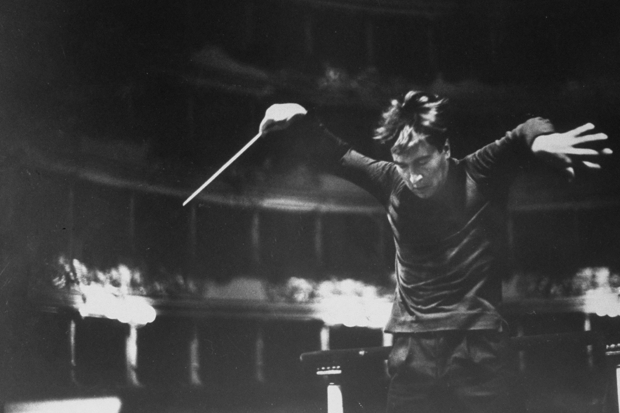Not long ago the great conductors of classical music were general practitioners. They expected to give satisfactory interpretations of music written from the beginnings of symphonic composition to the present day, and audiences took it for granted that, if they knew what they were doing with Mozart and Beethoven, they could be trusted with Handel and Stravinsky. Their orchestras adopted the same approach and, within a narrow definition that bespeaks a more innocent age, everyone was content. There was little concern that Handel would not have recognised the sound that the instruments of the modern orchestra was making; and no one was disturbed that the big hero figure out front with the histrionic gestures was an anachronism, liable to overblow the delicate textures of both Handel and Stravinsky.
Then came the Early Music revolution of the Seventies and Eighties — preceded by a similar kind of head-scratching in the performance of some contemporary music — and this cosy world was torn apart. Whole repertoires were taken away from the generalists, a new democratic spirit informed the management of the players, and the emperors of the podium found it much harder to convince the world that what they had to say should be listened to as if by divine right. This must have made conducting a Mahler symphony a much trickier task than it had been in the days of directing by imperial edict, and it made performing a Bach concerto effectively impossible. Counterpoint does not react well to over-romanticised grandstanding, and the likes of Toscanini had little option but to accept the fact.
This era effectively ended with the death of Herbert von Karajan in 1989. Although the appointment of Claudio Abbado, who died last month at the age of 80, to succeed him at the Berlin Philharmonic — the first non-German to hold the post — was a sign of the times, there was a lingering sense that what Abbado represented did not suit the great tradition of this orchestra. Of course they could have had a man like Lorin Maazel, whose autocratic style is old-fashioned by any reckoning; but they decided that, if they were to have a foreigner, they would have one they could sympathise with; and so a mould was broken. Abbado’s rehearsals may have been the opposite of Karajan’s: he said little and could seem unhelpfully introverted, but there was no doubting the power of his live performances. His Mahler was second to none, at a time when Mahler had become the ultimate test of a great orchestra on stage. The Berlin tradition had been modified and updated, appropriately becoming more European.
Abbado bridged the gap between the old way and the new. He had been trained exclusively in the old generalist approach, in Vienna, and it probably never occurred to him that his career might benefit from specialising, though he lived long enough to be tempted. In fact, he was well qualified to become an expert in contemporary music, undertaking some of the most difficult scores available — anyone giving premières of Ferneyhough’s music can count themselves an expert — and I have evidence that his early music was very good.
In September 1998, the Tallis Scholars found themselves sharing a platform with him in a televised launch of an exhibition of paintings by Dosso Dossi in Ferrara. We scrupulously sang music that Dossi might have known; Abbado sat down at the harpsichord and accompanied a young soprano in music by Monteverdi. The young lady sang flat, which prompted Abbado to say to us afterwards that he was deeply impressed by the standards the British maintain in renaissance and baroque singing, and wished he could work more in that sphere. Unlike Karajan, one suspects, he liked to stand around backstage, looking like one of the hands, chatting to everyone, quick to book us a restaurant he wanted to recommend. I noticed how his smile started in his eyes, from where it might or might not proceed to his lips. One waited with fascination to see whether it would.
The conducting profession has splintered. There are the dinosaurs like Maazel and Mehta; there are the general practitioners who have a broader portfolio than their predecessors like Rattle, Haitink, Tilson Thomas, even Dudamel; and there are the specialists like Gardiner, Norrington, Herreweghe and Harnoncourt, all of whom started with the early repertoires but have since felt it necessary to try to join the old élite. Whether these last are being true to themselves is an interesting question, but it is not a question that needs to be asked of Abbado. If he had been born a little later he might have specialised; what he achieved instead was to help turn conducting the great orchestral classics into a specialised activity. From which there is no looking back.






Comments